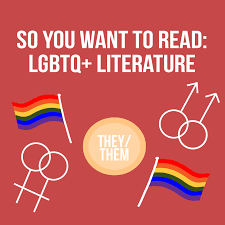Week 14 Prompt Response
This has been highly requested at the library in which I work. While I understand the desire to have a separate urban fiction section, there are some stumbling blocks that go with making a separate section for urban fiction. Things to consider when making this choice are 1) Are there enough books in the collection to create a separate section? 2) Would young adult and children's books be included or would the Youth Department be responsible for creating their own urban section? 3) Would this lead the way for patrons to begin requesting Asian American, Irish American, etc sections? In addition to that, unfortunately, usually the motives behind a request to separate LGBTQ are religious-based throughout our patronage. The requests to separate LGBTQ books from our collections come from highly religious individuals who feel we are attempting to groom young children into "this way of life." For example, one summer, when our Circulation Department put together very well-thought out and informational Pride displays, highlighting books in our collections, one particular patron made a complaint about the displays, stating that we were "promoting a devious lifestyle to children." When her complaint was dismissed, she checked out as many books as she could that were a part of her complaint, and kept them for months so no one else could check them out or even look at them.
Over all, I don't believe that there is a need to separate either Urban Fiction or LGBTQ from the general collection. One reason for this is that separating these two subgenres from their overarching Fiction category is, in essence, a form of censorship. As a public library, we do not believe in censorship of any kind, and specifically calling out and separating two subgenres goes against that. As librarians, we need to make sure that we provide our patrons with the information and knowledge they are seeking, no matter the subject matter. It is not our place to judge one way or the other. In addition to that, public libraries should be considered safe spaces for patrons to come to. Separating out LGBTQ from the rest of the collection might not work out so well for someone who is Questioning, but doesn't want anyone to know yet. We are supposed to be here to protect our patrons and their privacy, not expose them.
Secondly, while we have always had positive comments regarding Urban Fiction, the comments in regards to LGBTQ fiction have been less than. The patron demand for a separate LGBTQ section is widely religious-based and is not intended to celebrate the section or its readers. This goes hand in hand with censorship as well. Having these subgenres separated from the general collection could attract some negative attention from more conservative patrons. It's unfortunate, but a truth in our area and would not aid the patrons seeking these books.
Finally, when we begin to separate out certain subgenres of fiction versus others, we might find ourselves in rough waters. When does the separation end? How many times do we allow the demands of the public to influence how we classify and categorize our books? Unfortunately, separating out subgenres has the potential to lead to some tricky situations with no clear end in sight. When I managed a bookstore before moving to my local library, I had to learn that balance. There was a children's section, young adult, various nonfiction sections, fiction and sci-fi/fantasy. However, patrons would come in requesting that we separate out romance, westerns, mystery, thriller, suspense. Sometimes there just wasn't enough to create sections like this. Plus, it makes much more work for the employees to remember.
However, there are some creative solutions to consider if patrons are concerned that certain subgenres aren't being highlighted well enough. Some solutions to consider:
- Creating displays featuring Urban Fiction and LGBTQ
- Curating reading lists for patrons to take that includes books from both categories
- Creating Read-a-Like posters for patrons to discover other authors or books within Urban Fiction and LGBTQ Fiction which could be featured on a board or available at the public service desks
- Hosting book club nights specifically for these subgenres



Kayla,
ReplyDeleteI agree that separating either of those categories of books out from the other fiction is problematic, as it emphasizes the "otherness" of the characters and, as you said, makes it easier for patrons to observe who is checking out which types of books. I hesitate to refer to either of them as subgenres, though. Maybe that is because I'm pro-genrefication to an extent. The readers who come in asking for romance (or thrillers or horror or fantasy or science fictions or westerns or...) are looking for a specific type of reading experience, whereas an urban setting or LGBTQ+ characters could appear within pretty much any of those genres.
Working with the cataloger(s) at your library to ensure each book has thorough and accurate descriptions and subject headings to optimize searching would allow patrons to pinpoint that horror novel where a biromantic, asexual woman in gang territory methodically wipes out a gang by flaying its members. (Your bio does mention murder, so you'll probably be okay with this slightly deranged example.)